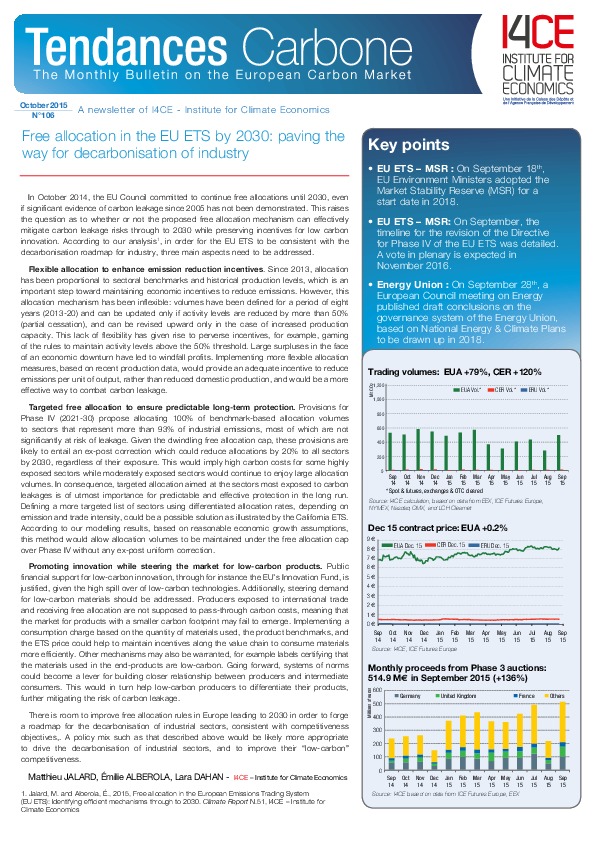Free allocation in the EU ETS by 2030: paving the way for decarbonisation of industry
By Matthieu JALARD, Émilie ALBEROLA et Lara DAHAN
In October 2014, the EU Council committed to continue free allocations until 2030, even if significant evidence of carbon leakage since 2005 has not been demonstrated. This raises the question as to whether or not the proposed free allocation mechanism can effectively mitigate carbon leakage risks through to 2030 while preserving incentives for low carbon innovation. According to our analysis[*], in order for the EU ETS to be consistent with the decarbonisation roadmap for industry, three main aspects need to be addressed.
- Flexible allocation to enhance emission reduction incentives
- Targeted free allocation to ensure predictable long-term protection.
- Promoting innovation while steering the market for low-carbon products.
